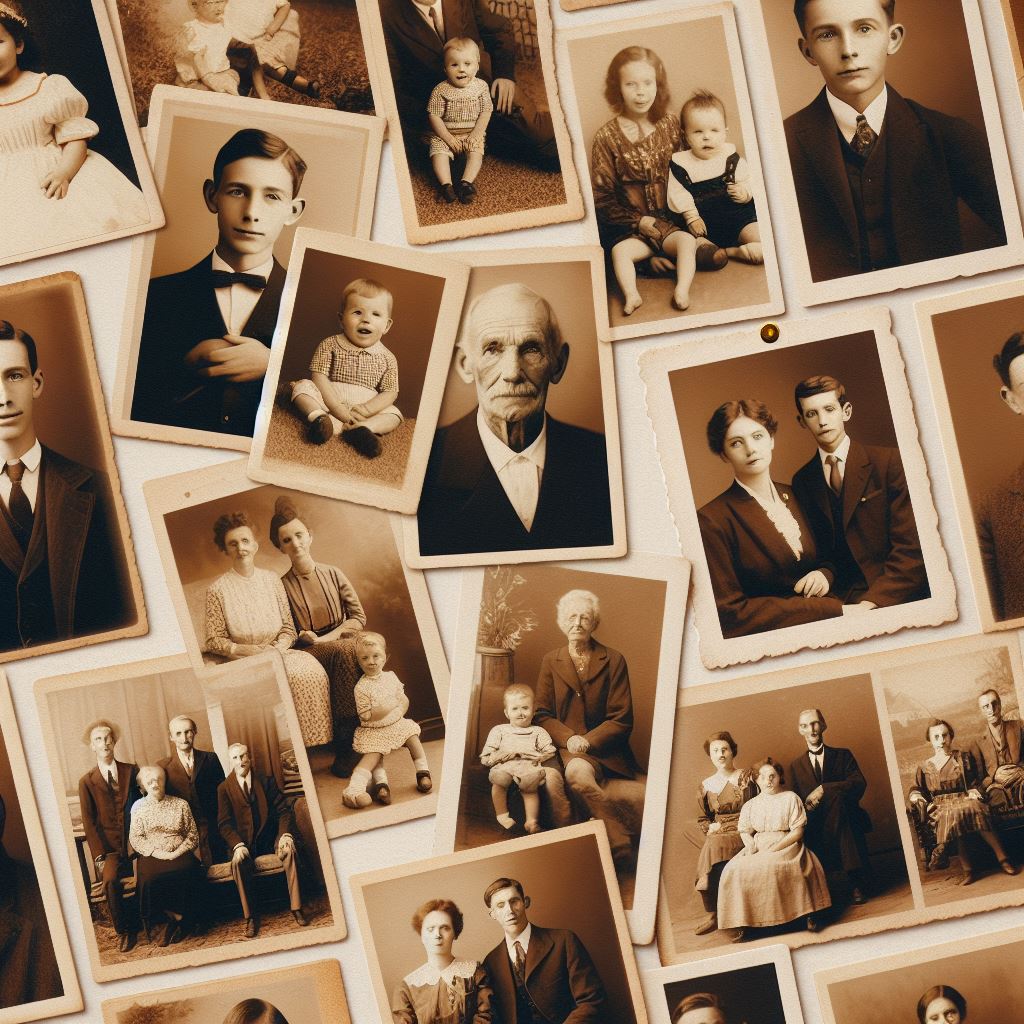
Intergenerational thinking means looking beyond yourself and understanding that you’re part of a large chain of “cause-and-effect” that stretches well beyond your lifetime.
We are not just isolated individuals whose lives begin at birth and end at death.
Every human being is part of a large complex web of cause-and-effect that stretches well beyond our individual lifetimes.
Before you were born, hundreds of past generations had to live, survive, and reproduce for you to exist today. They not only passed down their genes, but also their traditions, culture, education, wealth, and habits.
We’re all influenced by this past in varying degrees and varying ways – it’s an inextricable part of us that we can’t fully escape, whether we’re aware of it or not.
For better and for worse, we are where we are today due to the actions of our ancestors.
Human civilization is a product of intergenerational effects. The idea is always to build on past generations to create a better world for future generations.
As the classic Greek proverb goes, “A society grows great when old men plant trees whose shade they know they shall never sit in.” We have many unknown planters to thank.
The world as it exists today didn’t come out of nowhere. It’s the result of many generations of science, technology, culture, tradition, religion, art, music, and philosophy that have evolved throughout the decades and centuries. We’re all indebted to the past in one form or another.
When we start looking at our lives through this intergenerational lens, we recognize that we’re part of a much larger picture.
Your life is one chapter in a very epic story, and realizing that can create an extra layer of meaning behind everything you do.
Of course, everyone will relate to their past in a different way. There’s no “right” or “wrong” way to tell your story, although some interpretations may be more healthy and constructive than others.
Our past is important, but what’s even more important is what we do with our future.
How to Practice Intergenerational Thinking
- Recognize that you’re interconnected to many past, present, and future generations of humanity.
- Remember nothing in the past dictates your future. You can acknowledge how it’s led you to where you are today, but you still have a choice in how you respond to it moving forward.
- The past is always a resource to learn, grow, and improve.
- Identify family patterns that are common among different members, including similar habits, behaviors, health conditions, careers, or personality traits. Do you see any of these traits in yourself? Be honest.
- Practice family rituals and holidays traditions that still resonate with you. Pass them down to the next generation if possible.
- Collect sentimental objects or old photographs from your past. Share them with others.
- Take an ancestry test to learn more about your cultural and ethnic background. Create a scrapbook to save any research or information you discover. Put together a “family tree” if you can.
- Encourage older generations to share their stories, advice, and wisdom with you. In many ways, story-telling (and especially oral traditions passed down around campfires) represent the earliest stages of human civilization and culture.
- Learn more about human history, especially about traditions or cultures you identify with, including popular folktales, myths, art, or music.
- Minimize conflict and hostile feelings toward “older” and “younger” generations. Recognize that everyone has their unique perspective and bias, but you still have something to learn from everyone.
- Try your best to stay connected with meaningful people in your life – don’t underestimate the power of checking in on family and old friends, even if you haven’t spoken to them in a really long time.
- Understand that your actions and choices in life also influence future generations, including how you treat people, how you treat your environment, and the example you set for others.
- Our actions have a bigger effect than we realize. Research shows one simple benevolent act can cause a ripple effect of kindness through a group of people.
- If you have children, make it a priority to build them the most positive childhood possible, even if you didn’t have one (some intergenerational cycles need to be broken).
- There are also countless ways to influence future generations, such as through: education, art/music, volunteer work, charity, social activism, climate change, and other altruistic endeavors.
- Practice a loving-kindness meditation to cultivate positive feelings and good intentions toward everyone.
Everyone plays a role in building a better future; but to achieve that, we need to start looking beyond ourselves and recognize that we are part of a bigger whole.
Enter your email to stay updated on new articles in self improvement:
